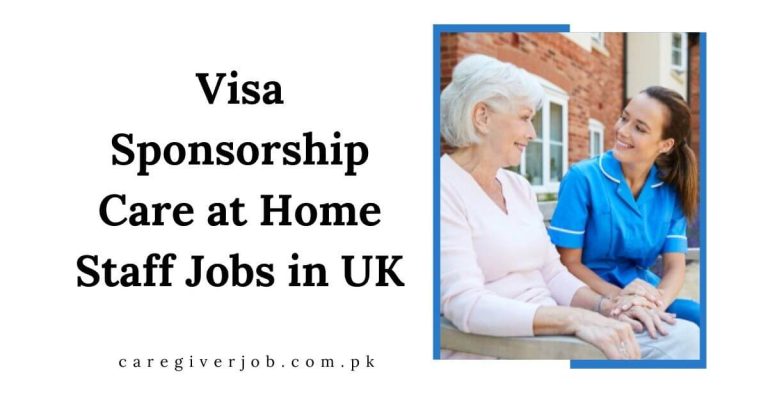High-Demand Nursing Jobs in New Zealand with Visa Support – Apply Today
Nurses seeking employment in a variety of captivating healthcare environments will find promising opportunities in New Zealand. The United States is offering visa sponsorship options to attract certified individuals from around the world in response to the increasing demand for healthcare specialists, including nurses.
This blog investigates a variety of nursing job factors in New Zealand, such as the categories of jobs available, duties, earnings expectations, advantages, and interest requirements.
Key Points:
- Job Title: Nursing Jobs
- Job Type: Full Time
- salary: $37.62 Per Hour
- Country: New Zealand
Requirements for High-Demand Nursing Jobs in New Zealand with Visa Support:
In order to be eligible for nursing positions in New Zealand, candidates must typically satisfy the following criteria:
- Education: A diploma or degree in nursing from a recognized organization.
- Registration: Eligibility for registration or registration with the Nursing Council of New Zealand (NCNZ).
- Experience: It is desirable to have a degree of function reliance, but it is generally preferred to be used in a medical environment.
- linguistic abilities: proficiency in the English language (often demonstrated through language examinations such as the IELTS).
Check Also: Visa Sponsorship Child Caregiver Jobs in New Zealand
Benefits of High-Demand Nursing Jobs in New Zealand:
- Pathway to Permanent Residency: Registered nurses are included in New Zealand’s Green List, which provides accelerated residency pathways.
- High Demand Throughout the Nation: There is a consistent nationwide need for nurses in community settings, senior care facilities, and hospitals.
- Attractive Salary Packages: Competitive salaries with annual increments, overtime, and shift allowances.
- Visa Sponsorship: The Accredited Employer Work Visa (AEWV) is a popular choice among numerous employers, who provide direct visa sponsorship.
- Work-Life Balance: Indulge in a leisurely existence with accommodating work hours and generous leave policies.
- Free Public Healthcare Access: Subsidized or free healthcare is frequently provided to sponsored nurses and their families.
- Family Inclusion: Dependents are granted work and study privileges. Bring your spouse and children.
- Modern healthcare facilities and patient-centered care systems: A world-class work environment.
- Opportunities for Career Advancement: Funded CPD (Continuing Professional Development) programs and specialized training.
- Permanent Contracts Are Available: Numerous employers provide permanent positions upon hiring, which enhances job security.
- Supportive Immigration Process: The government prioritizes the expedited processing of visas for qualified nurses.
- Relocation Assistance: Employers frequently offer temporary accommodation, flight reimbursements, and relocation grants.
- Live in a Country of Beauty and Safety: A clean, verdant environment, a low crime rate, and awe-inspiring nature.
- Integration Assistance: Mentorship, orientation programs, and community support to facilitate the process of acclimating.
- International Qualification Recognition: The Nursing Council of New Zealand recognizes nursing qualifications from a variety of countries, including the Philippines, India, South Africa, and the United Kingdom, upon registration.
Duties for High-Demand Nursing Jobs:
- Providing direct patient care and remedies.
- Medicines and remedies are administered in accordance with the prescription.
- Maintaining accurate patient information and monitoring their progress.
- Providing patients and their families with information regarding health issues.
- Collaboration with healthcare professionals to guarantee that disabled individuals receive coordinated care
Salary:
Location, qualifications, and experience are the sole factors that determine nurse salaries in New Zealand. Innovative profits degrees will increase from NZD 60,000 to NZD 90,000 annually beginning in 2025. Additionally, salaries may be elevated for nurses who specialize in certain fields or reside in regions with an abundance of demand.
Types of Jobs:
- Registered Nurse (RN): Provides renowned nursing care in hospitals, clinics, or network fitness centers.
- Clinical Nurse Specialist: A professional medical supervision and training position that specializes in a specific region, such as oncology, intellectual health, or essential care.
- Midwifery: The provision of care to expectant women and their infants during pregnancy, activities, and after delivery.
- Mental Health Nurse: Concentrates on the intellectual health needs of patients in psychiatric hospitals or a community of intellectual fitness centers.
- Children’s nurse: Provides care for infants, adolescents, and younger individuals in pediatric wards, clinics, or network contexts.
- Geriatric nurse: A professional who specializes in providing care for elderly patients, often working in nursing homes, rehabilitation centers, or providing domestic assistance.
- Emergency Room (ER) Nurse: Provides urgent health center treatment to patients in emergency departments, addressing critical conditions and distressing cases.
- Operating Room (OR) Nurse: Provides support to surgeons in a specific area of surgery and techniques, ensures the safety of the patient, and facilitates the coordination of the surgical team.
- Community Health Nurse: Offers fitness services to individuals and groups outside of traditional healthcare facilities, with a focus on preventive care and fitness training.
- Nurse Educator: Provides ongoing training for practical nurses employed in healthcare organizations or educational institutions, or instructs and trains neophyte nurses.
Job Application Process:
Step 1: Research and prepare
- Investigate nursing employment openings on recruitment firms, health agency websites, and job portals.
- Ensure that you satisfy the qualifications and registration requirements that are exclusive to NCNZ.
Step 2: Application
- Complete a comprehensive resume that emphasizes your nursing credentials, activities, and educational background.
- Compose a personalized cover letter that delineates your interests in relation to a particular nursing position and demonstrates your qualifications as a candidate.
Step 3: Interview
- In the event that you are selected for an interview, you will be invited to participate in a video call or in person.
- Prepare for clinical and behavioral inquiries regarding nursing practice in New Zealand.
Step 4: Sponsorship and Visa Registration
- If you have not already registered with NCNZ, begin the registration process once you have received your activity provision.
- Collaborate with your organization to initiate the visa application process, which may involve submitting evidence of qualifications and satisfying immigration regulations.
Step 5: Settlement and relocation
- After your visa has been approved, you should begin the process of relocating to New Zealand. This includes locating housing and becoming acquainted with the healthcare system.
- I hope you are enjoying your new position as a nurse in one of the most picturesque and health-conscious international destinations in the world!
Frequently Asked Questions:
What qualifications do I need to be a nurse in NZ?
To become a registered nurse in New Zealand, you must complete a Nursing Council-approved Bachelor of Nursing/Bachelor of Health Science (NZQA Level Seven program) from a polytechnic, institute of technology, or university.
Is it good to be a nurse in New Zealand?
Nurses live and work in New Zealand because of the excellent pay they receive. According to the average salary of a registered nurse in New Zealand, it is $71,510 annually. Entry-level positions pay a salary of $65,904 annually ; professionals with the most experience earn up to $80,955 per year.
What are the skill levels of nursing?
In the acquisition and development of a skill, a nurse passes through five levels of proficiency: novice, advanced beginner, competent, proficient, and expert. The novice or beginner lacks experience in the expected situations.







